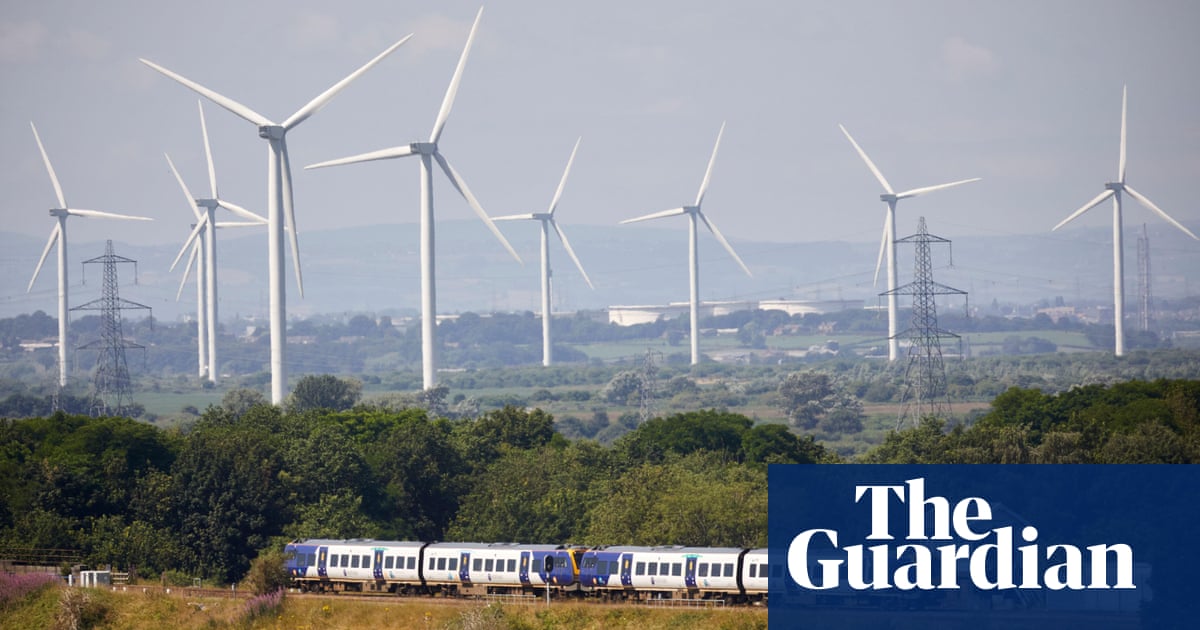
At last, the energy security strategy has been published, after weeks of hedging, briefing and delays. The original aims of the strategy, which was initially promised on 7 March, were worthy: to confront rocketing energy bills and transition away from Russian fossil fuels after the invasion of Ukraine.
There was also hope in the climate world that the strategy would go further and faster in the transition to a zero-carbon economy. The cost of renewables has tumbled, and the UK’s leaky housing stock is crying out for retrofitting. This was an opportunity for an urgent response both to the climate and cost of living crises.
But for something that was motivated by a war and an energy crisis, the headline policies of the resulting document strikingly fail to address either. One of the cornerstone issues is timescale: the strategy is big on infrastructure commitments such as new nuclear power plants and offshore wind farms, which won’t be fully operational for years, if not decades. Radical reform of the planning system to allow more onshore wind, one of the quickest and cheapest short-term salves to high energy bills, is absent. In its place there is a milquetoast commitment to “consulting on developing partnerships for a limited number of supportive communities”.
Months after Cop26, the strategy has committed to licensing and drilling for oil and gas in the North Sea. Its climate ambitions are therefore deeply questionable. The majority of this oil is tagged for export; as Kwasi Kwarteng, the business secretary, pointed out, domestic production won’t address energy bills but will only help fossil fuel executives get richer. Without nationalisation, new oil and gas will be sold at the market rate.
Shell made a profit of $19.3bn (£14.7bn) last year. Other energy companies have also been raking it in, benefiting from the extortionate price of gas. Instead of imposing a windfall tax on these oil and gas companies that could help fund energy saving measures, the government’s strategy does the precise opposite. New oil and gas could blow a gigantic hole in the UK’s carbon budget. Licensing new exploration is a brazen move even for the Johnson government, committing to oil and gas in the same week as the devastating IPCC report confirmed existing and planned fossil fuel infrastructure will far exceed the 1.5C limit.
This rushed energy security strategy, which is likely to be incompatible with the government’s other stated climate targets of net zero by 2050, is what happens when you push policies through the weird prism of the Tory party. Although the Johnson administration is no stranger to disorder, producing the energy security strategy has been chaos on a new scale.
Over the past few weeks, the prime minister has been attempting to put out multiple fires across his party. Headlines have been peppered with briefings and counter-briefings. On 23 March, the Guardian trailed that Johnson would champion onshore wind in defiance of his Nimby backbenchers. A mere fortnight later, he apparently backed away from onshore wind after over 100 backbenchers lobbied against the policy.
As a result, the new strategy has something for everyone, but pleases no one. A new survey into fracking has been ordered as bait to the Tory right, with Kwarteng claiming the government will be “guided by the science on shale gas”. But little has changed in the UK’s geology since the moratorium on fracking was enforced in 2019.
Another problem with this strategy is deeply familiar. While it presents a bundle of promises, there is no money to back these up. The key phrase to look out for is “up to”. Nuclear power could provide “up to 24GW by 2050”. The government will “look to increase the UK’s current 14GW of solar capacity which could grow up to 5 times by 2035”. Even “we would like to see up to 5GW from floating offshore wind”. These are not targets, they are vague intimations.
The energy strategy is silent on one fundamental issue – reducing energy demand. Widely reported wrangling between the Treasury, the Department for Business, Energy and Industrial Strategy and Number 10 is to blame. Energy efficiency measures are the quickest and cheapest way to lower energy bills and end reliance on Russian fossil fuels. They are also necessary for decarbonisation. But the Treasury blocked a proposal to expand the Energy Company Obligation scheme, which provides insulation measures to low-income households. This spat seemed petty to the point of ridicule: departments are bickering over a £200m top-up to an existing policy when an enormous, nationwide retrofit campaign will be both necessary and inevitable as our planet warms.
The problem is not only of ideological difference, but also ideological vacuum. Most civil servants had no idea a strategy was even in the pipeline when Johnson promised it four weeks ago. But a frenzy in Whitehall to make up policy on the hoof has become a common trait of this government, whose manifesto was slender and whose party consensus is messy on almost every issue.
Coordination across the cabinet is beyond Johnson’s reach, partly because he is weak and partly because he doesn’t know what he stands for. In 2012, he called wind turbines “white satanic mills” whose “collective oomph wouldn’t pull the skin off a rice pudding”. Now, he’s blowing hard for offshore wind. Johnson finds himself up against a popular, anti-spend chancellor and the Net Zero Scrutiny Group. Despite his 80-seat majority, he is unable to convince his backbenchers of the need for swift commitments to the cost-of-living and climate crises, whilst we career towards 3.2C warming. He has to squeeze everything past a reticent chancellor and a party whose backbenchers are a decade behind public opinion.
The result is a mash of promised policies which don’t tackle the issue of energy security. Without seriously contemplating a reduction in our energy demand or fast-tracking renewables, the strategy simply does not address what it was created for in the first place – ending dependence on a belligerent Russia, and bringing down eye-watering bills. Instead, the ragged Tory consensus is to deliver high-intensity infrastructure at some indefinite point in the future, and a failure to rise to the urgency required on energy for both people and planet.
Eleanor Salter writes about climate, culture and politics












